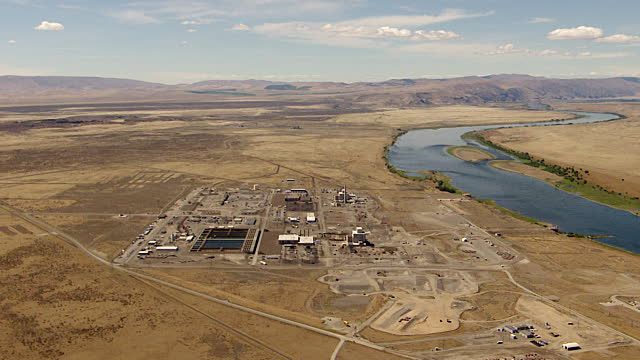The Washington Department of Ecology has issued a $1.065 million penalty to the U.S. Department of Energy for restricting access to what the state says is critical data.
“The restricted data is vital to Ecology’s regulatory and oversight role at the Hanford Nuclear Reservation in Eastern Washington near the Columbia River,” WDOE said in a press release.
“Without access to this data, we can’t effectively protect the land, air and water for residents in Eastern Washington and surrounding communities,” said Polly Zehm, acting director of Ecology. “We’ve attempted to negotiate this issue with the U.S. Department of Energy for years, only to find our access to information restricted even further.”
Energy, says the agency, “is legally required to provide access to this data as part of the binding Tri-Party Agreement that was signed by Energy, Ecology, and the U.S. Environmental Protection Agency in 1989. The agreement governs cleanup of the Hanford Site.”
The Hanford Site, tasked with the mission of creating plutonium for the nation’s nuclear weapons program decades ago, is now one of the most radioactively and chemically contaminated sites in the world.
Some of the extensive contamination includes 177 aging underground storage tanks that contain 56 million gallons of radioactive and chemically hazardous waste. More than one million gallons have leaked from the tanks.
The federal DOE is required to provide WDOE access to data it compiles — data that details the extent of contamination in soil and groundwater, how hazardous waste is managed, the status of underground storage tanks, progress made in cleaning up contamination, and more.
With access to the appropriate data, WDOE can verify that federal DOE treated water and air emissions to safe levels before discharging them to the environment.
“When Ecology’s inspectors find problems and require Energy to correct them, they cannot verify they have been corrected without access to that data. Similarly, Ecology can’t confirm Energy’s waste treatment meets required standards without access to its treatment data,” said WDOE.
Energy stores and treats waste in tanks and with equipment that is 50, 60, or even 70 years old. Ecology can only ensure the safety of aging infrastructure if Energy provides transparent access to operating records
“An agreement toward data access should have happened years ago,” Zehm said. “We negotiated for three years in good faith and granted a series of deadline extensions. We reached agreement in principle with Energy several times, but in the end, Energy chose to simply declare that it had met its obligations and walked away from the table.”
Restricting access to crucial data causes unnecessary delays in regulatory decisions and makes it nearly impossible to independently verify whether Energy has complied with requirements for managing its hazardous wastes.
“In recent months, Energy has stated its concern that regulatory delays causes it to miss cleanup milestones,” said Alex Smith, Nuclear Waste Program manager for Ecology. “This deflects from the very real issue that Energy is withholding access to data. Data that would speed up regulatory decisions while ensuring human health and the environment are protected.”
Prior to fining Energy, Ecology issued a Director’s Determination in December — establishing a schedule for Energy to develop a plan that will provide electronic access to the necessary data.
It is anticipated that the $1.065 million fine will be paid out of Energy’s $2.6 billion budget for the Hanford Site. Ecology says it “will aim to use the penalty funds to support Eastern Washington communities.”

